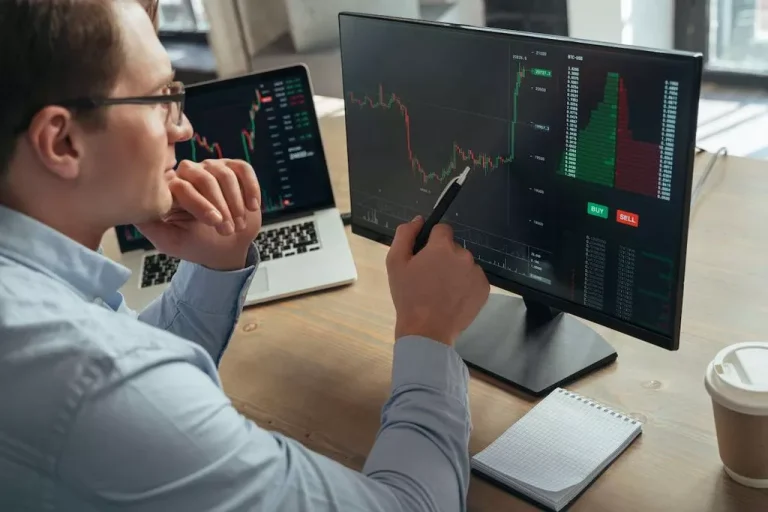Any establishment has more human resources, higher instruments, and MUCH extra capital. The latter may be an obstacle, though, as an enormous capital base makes it tougher to trade and move measurement. Institutional buying and selling is a concept that many merchants want to know extra about. Be it the retail traders eager to shift to institutional buying and selling or desirous to get employed in the institutional trading firm, there are lots of questions in regards to the idea. Chat With Traders is your key to the minds of financial market trading’s elite performers. Start listening to learn how a various mixture of merchants went from zero to hero, how they successfully commerce markets right now and get their finest tips and pointers for profitable efficiency, plus far more.
Liquidity refers to the capacity to buy or sell an asset with out causing a big value motion. Institutional investors, with their huge capital and willingness to tackle large positions, present the liquidity that helps markets operate easily. New technologies, shifting investor wants, and guidelines updates drive these modifications. They will use synthetic Proof of space intelligence, machine studying, and blockchain. There are also tech firms that make buying and selling platforms for establishments. These companies work with banks and asset managers to satisfy the needs of massive traders.
Such trades normally happen through private negotiation or by way of a dedicated block trading desk. These platforms have a massive effect on markets like Forex and fixed-income. Firms eager to list on an institutional trading platform should meet sure guidelines. Every kind of institutional dealer adds one thing special to the markets. Institutional traders have the benefit of a bigger capital base and can invest in a wider vary of securities, together with those with higher minimal funding requirements. Retail traders, however, might have limited capital, which restricts their capability to put money into sure securities or tackle bigger positions in the market.
Institutional merchants employ numerous methods, including international macro methods that think about macroeconomic factors, and index rebalancing, generally used by mutual funds. The range of methods aims to create uncorrelated portfolios for risk management. Given their capital capacity and the reality that they commerce with pooled funds, these institutions commerce in big volumes that can exert an enormous affect on the value dynamics of monetary instruments they trade.
What Is Institutional Trading?
In fact, Morgan Stanley said in 2019 that institutional traders account for 90% of the U.S. inventory buying and selling volume. Moreover, in accordance with research by Boston Consulting Group, the worldwide assets under administration amounted to $98 trillion in 2023. Institutional buying and selling strategies are varied and rely upon a quantity of elements similar to investment philosophy, time horizon and threat profile. Among the most common are arbitrage, algorithmic trading and techniques primarily based on technical or basic analysis. Environmental, social, and governance (ESG) investing is changing into an increasingly necessary facet of institutional buying and selling.

Institutional investors’ massive trades typically make a lot of volume, unlike small retail trades. Buying or selling a lot of securities without delay can actually affect the market. Their massive trades can really change the costs of property and form market developments. The advanced algorithms and complicated technologies that power institutional buying and selling platforms are at their coronary heart. These platforms use cutting-edge algorithms to research market information, identify trading opportunities, and execute transactions at lightning-fast speeds.
Key Differences Between Institutional And Retail Merchants
Their decisions, whether it’s about volatility or liquidity, can shake up these markets. This exhibits how important they’re to the markets’ stability and course. Nevertheless, their influence on the price dynamics of the market could be significant. Nevertheless, this additionally implies that competitors among merchants has elevated significantly. They are capable of fund and manage their portfolio in such a way that they’ll make earnings constantly.
Q: How Can Retail Traders Learn To Trade Like Institutional Traders?
The retail merchants, unlike the institutional traders, have a greater bandwidth to spend cash on the small-cap stocks. Examples embrace hedge funds, mutual funds, funding banks, endowment funds, pension funds, and insurance coverage corporations. They have completely different objectives, for instance https://www.xcritical.com/, hedge funds pursue absolute returns, and funding banks engage in market-making and proprietary trading. There are many players in the financial markets who may cause adjustments in development path, but let’s concentrate on institutional and retail merchants.
- On the other hand, retail traders commerce for themselves, typically paying more and facing limits on what they will purchase or promote.
- Institutional traders use numerous methods, including algorithmic and high-frequency trading, to execute their trades and achieve the best value and execution.
- These funds have a long-term funding horizon and typically spend cash on a broad range of asset lessons, both domestic and international.
- Gone are the days of handwritten orders and human-powered trading flooring.
Successful institutional traders typically use totally different approaches relying on their goals and risk tolerance levels. Retail merchants usually commerce in smaller quantities and may not have entry to the identical resources as institutional merchants. Latest reports suggest that institutional trading accounts for over 90% of daily buying and selling quantity within the US stock market. These institutions dapp examples have access to huge amounts of capital and employ subtle trading methods to generate income. By maintaining a tally of institutional activity and anticipating potential worth movements, you may be able to make more informed investment decisions that result in higher profits over time. Institutional merchants use numerous methods, together with algorithmic and high-frequency buying and selling, to execute their trades and obtain the best worth and execution.

This course equips the person with the necessary knowledge with regard to quantitative buying and selling practices together with the data and practical application of algorithmic buying and selling ideas. Hence, there is not a one resource that might be titled a particular institutional buying and selling resource. Nevertheless, there are a number of programs, books and podcasts that can assist to equip an individual with the mandatory information for profitable institutional buying and selling practices. Frankly speaking, so as to begin a profession in institutional buying and selling, there is no particular course or diploma that one needs to go for. It often is dependent upon how nicely versed you are with numbers and calculations. Institutions borrow funds to extend their trading positions, magnifying potential profits.
Institutions face strict compliance necessities, whereas retail traders can move out and in of trades without legal restrictions. These establishments enjoy privileges that retail merchants don’t, together with entry to non-public equity, pre-market trades, and bulk discounts on transaction charges. The larger the institutional fund, the higher the market cap institutional merchants are most likely to personal.
